#...but that doesn't mean it fundamentally changes the core of who you are
Text
I always think it's funny that a terrible life is one where "you're alone with no lover and you will only have the company of cats to keep you scarcely tethered to the real world.
Like... don't threaten me with a good time. That is a dream to me
#aro#aromantic#lgbt#lgbtq#and like... if your only tether to feeling full and whole and content is a magical whirlwind relationship...#...i don't necessarily think that's always better. i personally had to investigate that impulse for myself...#...and i found that i wasn't satisfied with myself and i wanted a distraction from knowing i am alive and real...#...plus being aro did help because i had to come to terms with the fact that i cannot 'function' in a typical way...#...i feel afinity toward single mid-30s/mid-40s crazy cat ladies...#...i always saw them shamed because they never 'found a man to put her in her place and make her whole' and it's just...#...she's living the ideal life to my eyes. even if she's lonely she doesn't *need* to be made whole...#...loneliness is not a sign of being lesser. it's a part of the human condition and it's natural...#...but that doesn't mean it fundamentally changes the core of who you are#my cat is my best friend. i don't need to replace her actually. my life is fine without having any relationship or whatever else
81 notes
·
View notes
Note
Can you elaborate on what you think would be the minimal needed changes to fix what you see as an issue in Civ? Civ has done fairly large shifts in some mechanics before, and "civ like" is still an interesting game space that can scratch certain itches
yeah i mean as i said, the baked-in racism arises from a certain set of core assumptions that i think lock it into that position, which are that civ is a
1) symmetrical
2) 4X
game about
3) 'real world civilizations' (deeply loaded terms ofc but that's how civ envisions them)
4) trying to 'win the game'
5) with a global
6) and transhistorical
scope
so, in its role as a symmetrical (1) game with victory conditions (4), civ as a text has to take positions on what constitutes a 'successful civilization'. as a (2) 4X game this definition also has to include some variation on the profoundly loaded eponymous Xs, 'explore, expand, exploit, and exterminate'. furthermore, as a (1) symmetrical game with a global, transhistorical (5, 6) scope, it has to necessarily create a model of what 'a civilization' looks like and apply it to every 'civilization' it wants to include, at all points in their history.
this all kind of naturally leads into civ being a game in which the colonial european imperialist powers are the default 'civilizations' and all other cultures are basically just like them -- a game where technology progresses linearly and innovations are made in the order they were in european imperial history -- a game where all cultures fundamentally work in the same way and hold similar values, a game where all religions are based on christianity (i mean, just look at civ vi's system, where every religion has a 'prophet', 'apostles', 'missionaries' and 'inquisitors'), a game where not only do cultures have teleological overarching 'goals' but where these goals are shared and these goals are fundamentally based on imperialist visions of 'victory'.
to drill into some specific examples: you can't play a game of civilization without founding cities. you will constantly be founding cities. when you're playing as 'the mongols' or 'the cree' or 'scythia', this makes no sense! these were peoples who historically had rich culture, science, arts, and certainly a notable military history, but were (to varying degrees, at varying times in their history, i don't mean to create a new and similarly heterogenous absolutist category here) nomadic!
similarly, to advance in civilization you must invent 'the wheel'. 'the wheel' is necessary to many later innovations, while of course the andean peoples represented by the playable 'inca' never made significant use of the wheel because the lack of suitable pack animals and environmental factors meant that it did not, in fact, prove a suitable tool for transporting large quantities of heavy goods. for an even more glaring example, a lot of early military technology is locked behind 'horses', which is pretty absurd considering that several of the game's playable civilizations, in the real world, developed plenty of military technology despite living on a continent without any horses!
so having established what i mean by 'the issue', which is that the game's core assumptions lock it into imposing a eurocentric, imperialist vision of 'civilization' onto cultures where it doesn't make sense, here's a few different jenga blocks you could pull out to resolve it:
SID MEIER'S EUROPE
the pillar you knock out here is #5. keep the game engine and core assumptions just as founded on eurocentric imperialist societies as they are now, and just make it about european empires doing imperialism. now, i think we can immediately spot some problems in there -- how are we going to represent the rest of the world? after all, this kind of just creates a situation where, either as NPC factions or as outright exclusions, all other cultures in the world are deprived of any meaningful agency in "history". this one just kind of gives you a new problem and also from a gameplay standpoint results in a game that just Has Less Stuff On It. i think this is a bad one
SID MEIER'S ELYSIUM
now here's one you can get if you knock out pillar #3. keep the same assumptions and gameplay and transhistorical global narrative scale, but remove the 'real-world' aspects. you can get real silly with it and add fantasy stuff to it, or you can be a relatively grounded 'our-world-but-to-the-left' situation. now to some extent this already matches a lot of the features already in civ games: after all, unless you specifically load in a 'true start location earth' map, you're usually playing on a strange parallel world with semiplausible but wholly original continents! now, you also need to get some fucking Nerds and Geeks working at your company to build out your fictional world, or you'll just end having pointlessly pallette swapped a bunch of factions that are now just Schmance, Schmina, and the Schoman Schempire, and not really have avoided the issue. but if you do that, and invent a deep and rich fictional history to riff on, then you could create something really cool and incorporate alt-tech or fantasy or retrofuturistic elements or all sorts of cool shit.
the downside of this is that it makes your game less accessible and appealing to a lot of people. a big part of (at least the initial) appeal of civilization is pointing at the screen and saying 'hey i recognize that thing!'. it is instantly more accessible to someone who isn't super invested in strategy or fantasy dork shit to say to them 'you can be BRAZIL and nuke FRANCE while at war with CHINA and allied to BABYLON'.
more importantly than that, i think some parts of the historical theming (because let's be honest, it is ultimately theming, i don't think civ is interested in 'history' in any serious way) serve a pretty load-bearing role in the game's information economy. it's a pretty tall order to ask a player to remember the unique abilities of dozens of factions and unique wonders, and the historical background makes it a lot easier. e.g., it is a lot easier for a player looking at wonders to remember 'the pyramids need to be built on desert' or 'broadway will help me make more culture' than it would be for them to remember the requirements/effects of 'under-eusapia' or the 'wompty dompty dom center'. i think this is one of the number one things that, if subtracted, would meaningfully create something that is no longer 'sid meier's civilization'.
SID MEIER'S ALPHA CENTAURI
now if you cut out #3 and #5 and #6 on the other hand... sid meier's alpha centauri is not technically an entry in the civilization franchise, but i think most people correctly consider it one. it has similar 4X gameplay to the series, and its (very bad) spiritual successor beyond earth was an official entry. instead of 'civilizations', the playable factions are splinters from a colony ship that fell into civil war as soon as it landed, each one representing a distinct ideology. now, y'know, this doesn't mean it's free from Some Problems (the portrayal of the Human Hive in particular is some of the worst apects of 90s orientalism all piled together) but i think they're problems it's not at all locked into by its design!
SID MEIER'S THERMOPILAE
by cutting out #5 and #6 -- making a civ game about a particular time and place in history you could achieve something much more richly detailed in mecahnics while also being able to handwave a lot more homogeny into it. giving the same basic mechanics to, say, every greek city-state in the peloponnesian war is far less ideologically loaded than giving them to every 'historical civilization' someone who watched a few history channel documentaries once can think of. it also lets you get really into the weeds and introduce era-and-place-specific mechanics.
the scale needs to be smaller conceptually but it doesn't really have to be smaller in terms of gameplay -- just make maps and tech trees and building more granular, less large-scale and more local and parochial and specific. this also gives you the advantage of being able to do the opposite of the last two options and really lean hard into the historical theming.
if this sounds like a good idea to you, then good news -- old world does something pretty similar, and it's pretty good! worth checking out.
SID MEIER'S LOVE AND PEACE ON PLANET EARTH
what if we take an axe to #2 and #4? instead of putting all these civilizations into a zero-sum game of violent expansion, make it possible for several civilization to win, for victory goals to not inherently involve 'defeating' or 'beating' other factions. now, that doesn't mean that the game should be a confictless city-builder -- after all, if you've decided to be super niceys and just try and make your society a pleasant place to live, that doesn't mean that the guy next to you isn't going to be going down the militarist-expansionist path. hell, even if all you want to do is provide for your citizens, a finite map with finite resources is going to drive you into conflict of some kind with your neighbours in the long run.
to make this work you'd have to add a bunch of new metrics -- 'quality of life', for example, as a more granular and contextual version of the 'happiness' mechanics a few games have had, or 'equality', game metrics that you could pursue to try to build an egalitarian, economically and socially just society where everyone is provided for. after all, why shouldn't that be a goal to strive for just as much as going to mars or being elected super world president or whatever?
SID MEIER'S DIVERSE HISTORICAL CONTEXTS
ultimately, all cards on the table, if i was made god-empress of The Next Civ Game, this is the option i'd go for: jettison #1 as much as practically possible, introduce as much asymmetry into the game as you can. some civilizations keep the established settler-city model -- others are nomadic, building their units in movable 'camps' -- maybe the 'colonial' civilizations, your USA and Brazil and so on, can be like the alien factions from the alpha centauri DLC, only showing as NPCs at the appropriate point in the timeline when other civs are colonizing other continents, or putting you into an accelerated-forward version of the game if you choose to play as one.
you could combine this with a more interesting version of humankind's civ-choosing system, where you lock certain civilization choices behind specific gameplay events. this would let you do crazy shit with the balancing -- imagine an ostrogothic kindgom civ with crazy strong abilities and units that you could only choose to play as if your capital is overrun by barbarians, or a hungarian civ that requires you to have started as a nomadic civ and invaded somewhere, or a soviet union civ that requires you to lose a revolution, or a usamerican civ that requires you to split off all cities on a foreign continent from your original civ -- you could add so much variety and so many new and bizarre strategies into the game with this!
as for the universal aspects of tech and the narratives of linear progression contained within, there are lots of approaches that already solve this! stuff like stellaris' semi-random branching tech paths, or endless space 2's circular tech web, could allow civilizations to take tech paths that make sense for them, rather than imposing one single model of 'technological progress' on the wole world.
obviously there's limits to this, right -- civilization isn't going to be a detailed historical materialism simulator any time soon. but i think abandoning the idea that every faction has to play fundamentally the same and introducing some severe asymmetry as well as choices that you can make after starting the game would work wonders to wash out some of the racist and colonialist assumptions built into the game's foundation, while also (imo) creating a more fun and interesting game.
438 notes
·
View notes
Note
I remember reading a post that men are the oppressor class so why would they bother to dismantle systemic patriarchy when they actively benefit from its existence? And as I read it, I thought, Damn, so an entire half of the population can never conceivably help us, and the people who love men in their lives are doomed. It wasn't a helpful post. It basically felt, here's some actual material analysis on feminism and said, That trying to educate and make men be part of feminism is fundamentally a flawed effort, because again, they are the oppressor class, why should they care about uplifting the oppressed?
And it made me think about this very good pamphlet I read, explaining how the white worker remained complacent for so long because at least they weren't a Black slave. And that the author theorized the reason labor movements never truly created exceptional, radical change is because of internal racism (which I find true) and failure to uplift black people. And the author listed common outlooks/approaches to this problem, and one of them was: "We should ignore the white folks entirely and hold solidarity with only other POC, and the countries in the Global South. Who needs those wishy-washy white fragile leftists who don't care about what we think or want?" (roughly paraphrased.)
And the author said, This sounds like the most leftist and radical position, but it's totally flawed because it absolves us of our responsibility to dismantle white supremacy for the sake of our fellow marginalized people, and we are basically ignoring the problem. And that blew me away because this is a position so many activists have, to just ignore the white folks and focus entirely on our own movements. I wish I knew the name of the actual pamphlet, so I could quote entire passages at you.
But I feel this is the same for men. Obviously, we should prioritize and have women-led and women-focused feminism. But saying that men are an oppressor class so they can't reliably be counted upon in feminist activism--it's such a huge oversimplification. And mainly, I'm a Muslim, and I've been treated with plenty of misogyny from Muslim men. And also plenty of misogyny from Muslim women. And I love my male friends, I want men to be part of the movement, and I dunno. Thinking about communities, movements, and the various ways we fail each other and what it means to be truly intersectional keeps me up at night.
I don't know the pamphlet you're talking about but I've read and been taught similar. There's a reason much of my anti-racism is so feminist and most of my feminism is anti-racist. Many people coming at this problem from a truly intersectional angle have seen that there is no freedom to be had without joining hands across the community. Not picking and choosing our allies based off of identity but off of behavior.
As used in a previous example, a white abled moderately wealthy man saying "wow Healthcare sucks in this country, why does this system suck so bad" should be told "hey, this system sucks so bad because it's built off of sexism, racism, classism, and ableism. You want to improve the system? Fix those things and it will be much better in the long run" and not "shut up you're a man. Healthcare is always going to be better for you". The second response doesn't fix that Healthcare is still a problem even if you are at the "top" of the privilege ladder. If we want true change, we have to dismantle the entire system at it's core and build it up without the yuck, otherwise you're gunna get to the top and realize this place sucks too.
Something something if the crabs worked together to hold each other up, they could all get out of the bucket and be free.
308 notes
·
View notes
Text
da2's arishok is a good villain. if you have a fundamental understanding of the qun and listen to his thought process, the things he does makes sense. he uses the qun to justify slaughtering kirkwall's people, which is utterly inexcusable and what makes him a villain, but his character is complex enough to make dealing with him that much more thought provoking. he sends agents to kill petrice because she was killing his people, he doesn't give up the elves because they committed their lives to the qun, no matter how recently they converted, and he refuses to leave without the tome (and isabela) because his idea of justice hasn't been done. his logic makes sense, generally, though it is wrong on more than one occasion. he isn't moral, but he is methodical.
i feel this way about solas, too. i like da2's arishok for the same reasons that initially draw people to solas, i think. when we meet them, i find them interesting and educational to talk to, someone worthy of respect, and someone very honorable in their own way. similarly, many of my issues with solas compare with flaws in the qun/the arishok.
solas asserts that all of his beliefs are correct, and we're never allowed to challenge him on any of it. if he has high enough approval, he'll approach you to go, "yknow, i thought you were all [insert prejudice or stereotype] but YOU showed me that some of you guys are actually okay," which is NOT what it looks like for someone's beliefs to be challenged.
brief aside, i want to be fair in that we don't get this opportunity with many of the companions, and it's not even an inquisition specific issue. the dialogue format is agree, joke, be mean, and it's flawed, but it works in the majority of interactions. we don't really get to engage in nuanced discussions with characters, but there are positives and negatives to the system overall. it is possible to challenge and shape a character within this dialogue system (i.e., garrus vakarian) but in dragon age that really only comes in the form of harden/unharden. it was a little more doable with origins' system, but it really hasn't been a huge part of any dragon age game. most characters' beliefs remain largely unchanged by you regardless of how you play.
solas also possesses a strong sense of duty and purpose, though what duty he has, what his true goals are, he keeps hidden as long as he can. the most damning comparison though, to me, is how willing he is to destroy the world and bring back "his people," while the qunari fight to conquer the world and homogenize society into "their people."
in any case, with both him and the arishok, you can see the wheels turning in their heads. you can see why they do what they do, even if it's wholly immoral. it makes their threat a lot more personal, a lot scarier, psychologically, that a "normal" person, who doesn't want to cause suffering, can hold such specific beliefs and such strong conviction that knowing that they'll hurt people doesn't give them any pause. the root of their motivation is understandable. solas wants to right his wrongs, at his core. the arishok implicitly believes that the qun is safer, better for its people than life outside the qun. we can see that they're taking it too far, but they don't care. it makes them good villains.
"i am not corypheus, i take no joy in this." sure, which is a very similar sentiment, emotionally, to the qunari sense of duty. you can say you don't enjoy it all you want, you're still committing genocide. you can hate the qunari all you want, but you fight with their ferocity, their unshakeable faith in their own cause. their need to "do what's right," no matter who's caught in the wake.
i understand why people like solas, i go back and forth on it myself, but i don't think he's all that different from the arishok in method and motivation. they're each thrust into a world so different from what they believe is "right" that they demand it change around them. if we had to kill the old arishok, then if solas refuses to give up, he will have to die. he doesn't get to do genocide just because he's romanceable. he's a good character, he's a good villain, but he's not a good guy, and unless he stops before he does any real harm (which he will not do), he should share the arishok's fate.
#ive had a hard time trying to put words to the way i feel about solas#but this does it#solas is a good character and quite likeable for lots of reasons#especially in inquisition's main story#but end of the day hes not a good fuckin dude#also please engage with this it took me like three hours#da discourse#cw: genocide#dragon age#dragon age 2#dragon age inquisition#da2#dai#the arishok#solas#fen'harel
453 notes
·
View notes
Note
I think it makes sense to say that angels as ethereal beings in heaven are sexless but if one or two spend 6000 years on earth BEING male-sexed human bodies it no longer makes sense. As people keep recognising, eating food, drinking and driving fast among other things are all deeply embodied experiences and these have fundamentally changed them as people. The whole Jesus story is the same deal, being embodied human is transformative. We live in a time when the concept of embodiment is deeply unfashionable and Cartesian dualism is entrenched, where endless body mods and casual drugs and careless manipulation of core human physiology is enacted with barely an afterthought for deep-reaching and irreversible consequences, but it's a deeply sick framework for seeing the world
(In response to this meta about ineffables and romance/asexuality)
First of all, they don’t have “male-sexed human bodies.” They are literally "sexless unless they really want to make an effort” (Good Omens, 1990).
Like all of Neil Gaiman’s angels and demons (see The Sandman), Aziraphale and Crowley have no set genitalia, don’t (by default) engage in sexual activity, and they don’t always present or dress as male through history (although they often do).
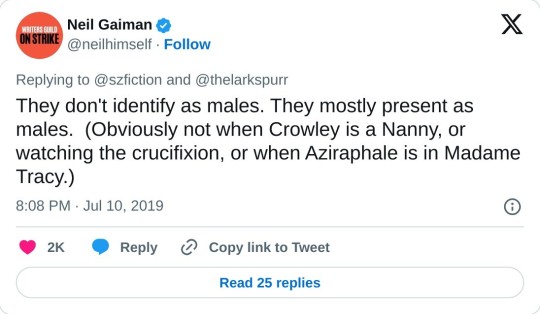
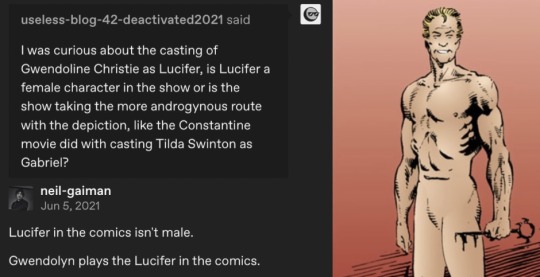
critical-gemini-hero (excerpt): "Good Omens is the first big show I’ve seen to basically avoid transphobia all together when the opportunity presented itself, and even say fuck you to the gender binary as a bonus."
Neil Gaiman (excerpt): "Thank you! That was definitely what we were going for."
(source)
So no, they quite literally do not have “male-sexed human bodies” and they do not ascribe to human gender norms.
In addition, what you are suggesting is that “being in a male human body” equates to “feeling male” and “feeling sexual” because “the body dictates internal experience.”
There are literally millions of people, actual human beings living in physical bodies, who (despite living in culture) still DO NOT feel that the gender assigned to their bodies is reflective of their lived, internal experience. Merely having physical attributes does not mean you have a corresponding internal experience. You can be forced by your parents, teachers, elders, peers and everyone else to FEEL a certain way because of your “sexed human body” but it won’t make it true inside you.
If one's internal experience were so unimportant, then we wouldn't have 82% of transgender individuals consider suicide (source) because of the stigma of trying to get out of the norms assigned to them because of their "sexed human bodies."
Aziraphale and Crowley have lived in history long enough to know how varied and complicated the concepts of gender AND sex have been historically. As spiritual beings, I think seeing how much humanity has varied in its ideas on sex and gender only confirms to them how unlike humans they are (with humanity’s obsession with genitalia, sex, reproduction… food, shelter, warmth, breathing––all things that angels and demons do not need to survive).
They love humanity, they love its pleasures and inventions, but they are still very much detached from it. Looking like humans definitely doesn't help them feel like humans at all. (Look at how they talk about us!)
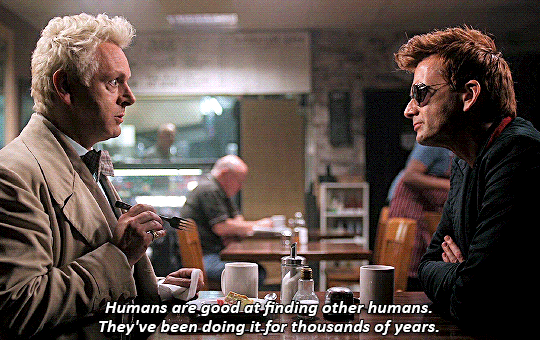
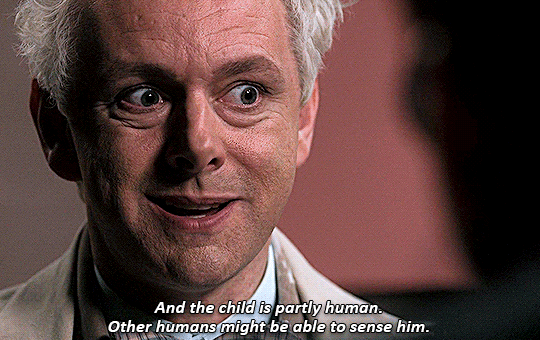
What are we, sniffer dogs??? They don't know what we feel like on the inside or how our biology works (we sure ain't sniffer dogs) because despite some surface appearances, they don't have the same internal experiences as us. Despite being here since the dawn of time. Despite looking like us in many ways.
They can magic up clothing and sideburns and eldritch heads to scare trigger-happy corporate men, and yet somehow gender and sex (as specifically Western-binary concepts) are something they'd totally get down with?
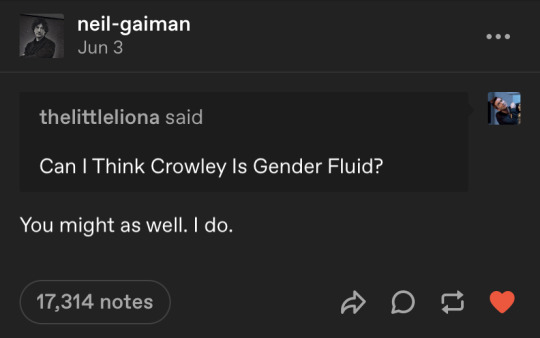
Also, your line of reasoning imagines people having no internal motivation or desire and suddenly get a tattoo and start to become a “bad person” or something. Yes, of course changing our bodies can affect our psychology, but our internal identity much more often influences our bodily choices than the other way around. I'm taking the drugs because I'm already depressed. I'm getting the tat because I want something cool on my body. I'm taking testosterone because I want my inner identity reflected in some ways on my physical body.
#this got long#good omens#good omens 2#THEY ARE NOT MALE HUMANS#genderfluid#queer#transgender#trans#lgbt#lgbtqia#asexual#nonbinary#neil gaiman#tagging the tags cuz I think this is important#go meta#good omens meta#ask#anon
354 notes
·
View notes
Text
I loved how NEO pulled the rug out with Rindo’s character. At first, he generally seems much more sociable and outwardly friendly compared to Neku and then the game quickly goes "yeah, nah, he’s a huge fucking mess too." He’s a good kid fundamentally at his core but he can also be whiny, hypocritical, passive-aggressive, and kind of insensitive at times. He has a tendency to be judgemental and harsh to the people around him while not acknowledging his own faults, like when he complains about Beat joining the team even though he saved their lives beforehand because he’s not Neku or when he gives Fret shit for fawning over Eiji Oji and Kanon while falling for Motoi’s BS. He’s so pessimistic about himself and others that not even a death game that heavily emphasizes the value of teamwork can get him to fully come out of his shell, which is where his time-travel powers come in AND EVEN THEN it’s a double-edged sword since on one hand, it forces him to actively step up to the plate and survey the situation to find the best possible solution, which leads to him slowly growing out of his shell, but on the other, it also leads to him becoming overly reliant on his time travel so that he can walk back from potentially life-changing decisions without having to worry about it since he has a magic reset button. Which ends up biting him in the ass. Hard.
He’s one of those types of people who is ultimately a thinker and planner instead of a do-er, but his being young and overly impressionable takes this personality quirk to such an extreme that he's foundationally useless to most groups. He’s the type of person who you have in a group project who sits around and does nothing, but then complains with the project does poorly because he couldn't be bothered to speak.
He's so unconfident and directionless that he uses effectively Instagram as a means to listen to someone who sounds like some 2deep4u philosopher post dumb flowery bullshit that effectively has all the meaning of "Drink water when you're thirsty." and he admits to finding such "deep" meaning in these posts that it supposedly helped him through life. Because he's 15 and doesn't know anything.
However, all of this makes him interesting as a character because he’s, again, still a fundamentally good kid at his core. While he’s shown to have a fuse, he is also the kind of person who has the ability to think his emotions through. That's what we ultimately see when he and Fret finally talk and drop their beef. The game depicting Rindo's capacity for self-awareness and emotional reflection is a positive revelation of his character strengths. He proves that he's capable of recognizing when he's in the wrong and knows how to apologize, a trait he shows quite a few times throughout the story, while also doing everything he can to set things right as well as be more understanding toward how his friends feels.
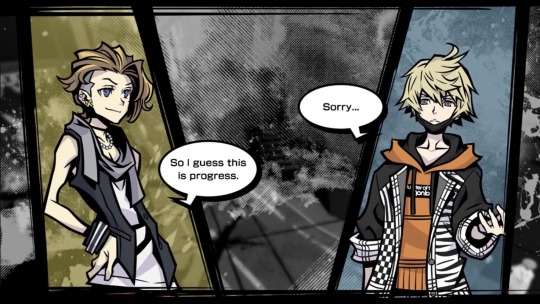



He’s kind of the guy who will drop everything to help a little kid out, even when there’s no tangible benefit to doing so and he and the others are shown to be on limited time, shows empathy to his friends/fallen enemies, and feels massive amounts of guilt for his actions, even if he didn’t know better at the time.
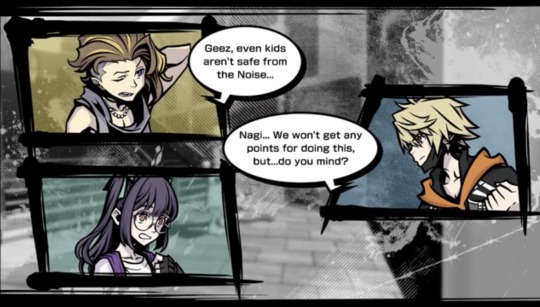
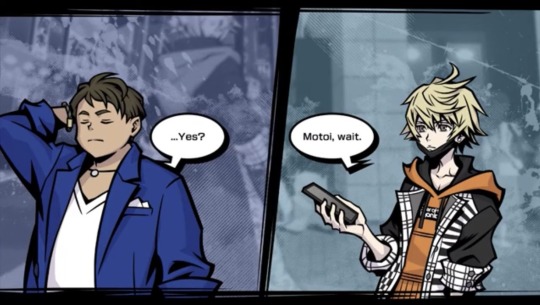


Hell, the entire endgame is fueled by his selfish yet understandable desire to save the people he cares about most from total erasure, to the point that he’s willing to risk thousands of lives to do so. But not only is he shown to be internally grappling with himself regarding his decision but he’s also willing to take responsibility and ensure that EVERYTHING goes right not just for himself and his friends but the people of Shibuya in general, in a parallel to Neku’s own selfish if understandable decision to put the bonds he formed in the original game (particularly with Joshua) over the actual city.
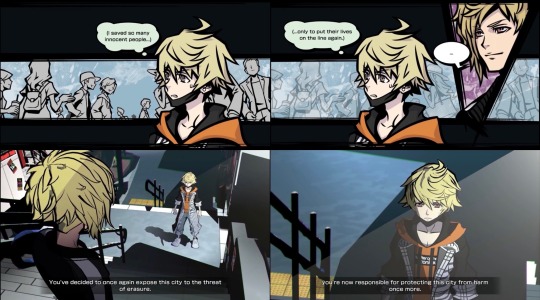
Characters aren't interesting simply by switching between 2 different character traits. They're interesting when all those traits are being expressed at the same time for reasons that are consistent within their internal logic. You gotta be a good writer to pull that off and you gotta know when to show off these dimensions during your story to achieve proper dramatic effect when the time calls for it and NEO I feel does this pretty damn well.
#rindo kanade#twewy#the world ends with you#neo twewy#ntwewy#neo the world ends with you#analysis post
215 notes
·
View notes
Text
ok Worm Bigotry Breakdown in more detail for @silverflyingpikachu
tl;dr: author is Cishet White Guy From Canada In 2011. he ostensibly thinks he is progressive. this does not change his proclivity for tossing his Cishet White Guy From Canada Biases into the books and then saying even more bigoted things in defense of those writing decisions on forums. wildbow is just some cunt on the forums with bad opinions on wildbow's writing. the book is 1.7 million words long but i believe in my ability 2 categorize this shit with decent accuracy. everyone who has ever said worm's CWs can't be categorized, including wildbow himself, is a lying ass bitch. this will include some vague spoilers, because i can't really go in-depth without a few examples, but i'll stay away from anything too plot-critical.
racism:
- worm is fundamentally a book abt systems of power and the ways in which they suck. some of the critiques worm issues--e.g, its depiction of how school systems enable bullying, inspired by wildbow's own experiences w/ the school systems as a deaf kid--are viscerally accurate and incredibly compelling. but wildbow fundamentally doesn't understand how certain systems of oppression work--e.g policing--and subsequently, his attempts at depicting them occasionally fall flat onto their face and land in racist territory. this gets particularly nasty when combined w/ the White Guy Author propensity for racist stereotypes--for example, his chosen face of police brutality is a black girl portrayed as predatory & animalistic.
- who is also one of the only black people in the book overall, alongside--for example--an addict portrayed as having less interiority & being less deserving of empathy than A Literal Fucking Nazi. also, the main characters have to team up with the nazis "for the greater good" (defeating the mean asian villains) at one point. it is a mercy to the readers when this part of the story ends.
- there are two black characters in the main cast. for the first, wildbow just Straight Up Forgot to include the most compelling aspect of their background + characterization in the text (it was provided via WoG instead, which i provide to all wormreaders like a fuckin' DLC patch when they get to where it's relevant) & entirely forgets they exist towards where the end of their character arc should have been. the second is introduced w/ the most misogynoiristic description on the planet but blessedly has a largely compelling and well-written arc as the book goes on.
- depiction of china is just like. fox news level sinophobic "it's all a brainwashed indistinguishable evil cult" shit. not relevant for very long relatively speaking but insufferable to read. asian characters are also like. we got Brutal Yet Honorable Asian Man. we got Fiery Asian Girl With Blue Eyes. it fucking blows it's not good
- oh yeah forgot this one someone mentioned in the tags. #it's an insignificant paragraph and nobody talks about it but the part where it goes #“yeah literally EVERY cape in South America is with a cartel and the heroes are barely distinguishable from the villains” #fuck you #not that the others aren't bad the fatphobia gets really gross but nobody mentions this and that one got me so yeah typical Insufferable Awful Imperial Core Author Understanding Of What Other Countries Are Like
- i could make this section one million bulletpoints long but the gist is summarized i think--wildbow's varied racist biases leak fucking everywhere, into character design, into narrative assumptions about who's deserving of interiority/empathy or not, into attempts at Saying Anything About Society, into which characters he prioritizes, into who he offers validity via the narrative, etc etc etc.
homophobia:
- theres a girl named amy dallon in it and she is the worst lesbophobic stereotype ever known to man. no other Problematic Lesbian™ you can think of has anything on this girl. the worst part is that she genuinely has a decently compelling character concept and arc, which her being awful is integral to, so you might accidentally find her interesting anyway and then she'll move into your brain
- wildbow kept accidentally writing characters that scan as massive dykes and then got really mad about f/f ships for the book being popular in the fandom. he responded by making a deranged forum post involving the phrase "pandering is pandering" insisting everyone (but the bisexual "hedonist") is straight and writing a scene into the book where one of the characters literally turns to the camera and tells the readers "not to get the wrong idea" about her hugging her friend.
- over the course of 1.7 million words he finds excuses to loudly inform you that all of the relevant female characters are straight and it's sooo shoehorned in you can always tell when he's doing it
- basically worm is like if naruto was about homoerotic teenage girls who do violent terrible things, in terms of levels of unintentional homoeroticism, and the author responds to ppl going "lmao gay" about the unintentional homoeroticism with poorly restrained seething rage
fatphobia:
- generic brand of fatphobia you'll see in p much all mainstream media where only side/bg characters are fat and it's obliquely used as a descriptor to indicate that someone has negative personality traits or should be viewed as sort of gross
anti-addict shit:
- wildbow generally likes writing about how social circumstances--i.e neglect from society, oppression, failure on behalf of systems--causes crime. he generally likes demonstrating the ways in which the villainous main characters are traumatized teenagers failed by society fumbling to keep existing & holding each other up through The Horrors. unfortunately all of this intelligent writing flies out the nearest window when addicts are involved. there is a gang comprised entirely of addicts, all of whom are portrayed as disgusting, violent, dangerous, and of course often racially stereotyped. it is a mercy to the readers when they're no longer relevant to the story.
- on a more subtle level, characters are every so often just like. a little more anti-drug than they would realistically be and you can tell it's wildbow's opinions leaking into their characterization. this is largely what the anti-addict writing is kept to after The Addict Villains leave the story iirc.
if youre wondering wellwhy does anyone read this book then. to that i would say that unfortunately despite it all it'sa fucking excellent book. so we all carry on reading the parts that suck and thinking about how they suck and then reading the parts that fuck and going "ouuugh my god" and rolling down 20 flights of stairs about how hard they fuck.
#sorry if i missed anything this entire post was written while so tired#parahumans#apparenty people lke this one so ill maintag it in case anyone finds it useful its very slapdash though
236 notes
·
View notes
Text
PART 4: Royalty Kinda Sucks
So, here’s the situation: When we are first introduced to the concept of Nobility, as seen through the Nobility’s eyes, it becomes apparent that there’s a reason behind every nonsensical tradition there is.
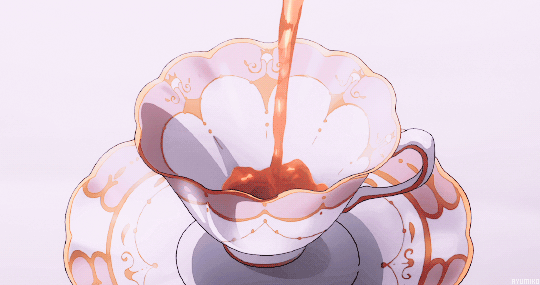
You must always smile and conceal your emotions because else, you’ll be in danger, making yourself the enemy of someone you cannot refuse. Civilians must be devoted to their Lord/nobles because they’re the ones with Mana, and without Mana, the farmers suffer. There’s no food, there’s no agriculture.
And at the beginning of the series, Rozemyne accepts this as the truth.
She sees how the amount of Mana offered correlates to the very livelihood of the commoners. Just like her, we as an audience, believe this story 100%. There’s an order to things, Nobility is inherently superior, some people just wield more power than others.
Despite this, however, Rozemyne never fully buys into this idea.
Ferdinand and the rest of the nobles say “There’s no need for commoners, they live entirely by the kindness or lack of it from the nobles”
While, on the surface, Rozemyne agrees to it (or more like, cannot find a way to counterargument), each every action since proves that she very much disagrees.
She keeps listening to commoners, keeps trying to employ the orphans, educating the kids, and forming connection with the merchants. Her instance on staying on the temple is very much a way for her to cling to her commoner origins and refusing to let go of them. And, whenever someone tries to take advantage of them, she tries her hardest to stop it by any means possible.
My favourite argument she makes, is when she explains, in Part 4 to Hartmut that:
“If we view this as nobles thinking up trendy goods and commoners making them, then nobles are the thinking mind while commoners are their hands and feet, no? Overloading commoners with unreasonable demands is no better than crippling one’s own arms and legs”.
On the surface this is an argument that appeals to nobles, seeing commoners as nothing more than another tool that must be properly utilized. However, Rozemyne is inadvertently sneaking in one of her own core views: Nobles and commoners and equals.
Rather than seeing commoners as an entirely detached object, she introduces the idea of commoners and nobility existing in an ecosystem. And here comes the first bit of proper commentary:
Hierarchies are fundamentally flawed, and what we need in a society are communities.

Rozemyne, being a chronically ill person, depends on others to do her work. To survive, we need communities and support networks. Some of the most brilliant minds and powerful players of the game do not thrive in a society that rigidly adheres to power structures such as nobility. Those so quick to toss away and dispose of whoever doesn't "fit in". Best example is Ferdiand - who was stiffled by Veronica.
This is juxtaposed with Ferdinand Hirschurl and Christine, all geniuses in their own right, extremely capable and talented. Neither of which was able to survive Ehrenfest. Even nobles of other duchies state that a single talented individual is incapable of turning the tides of their duchy.
It’s only when Rozemyne comes into the picture, forcing people around her to function as a community, as a system, that any real change is made. She’s remarkable, perhaps more than for her intellect, in her ability to raise people. Her ability to form systems and networks of highly skilled attendants what allows her to be perceived as a saint.
This is a direct contrast to her days as Urano, where she only ever submersed herself in books. I don’t doubt that Urano was as much of a genius as Rozemyne is - but her inability to connect and create a community to help her out was what caused her to be isolated. Only ever to see books and nothing more.
As Myne, she was forced to confront how vital to her survival family and community mean. As Rozemyne, she was forced to build her own, due to how nobility absolutely destroys said community in favour of a hierarchy.
And all of this, is a microcosm of Royalty.
The same attitude the nobles have to commoners is a direct 1:1 to how royals treat other nobles. They see nobles as little more than objects to be ordered around, and just like noble destroy communities and networks, royalty destroys them. Just on a much larger scale.
Rather than seeing other duchies as, you know, arms and legs to make Yurgenschmidt more powerful, capable or rich, they see them as pawns to move around to protect/save Royals themselves. As if they are Yugernschmidt.
Whenever they say “for the good of Yurgenschmidt” it’s always synonymous with the “good of Royalty”.
The duchies only exist to serve Royals, and not the other way around. They’re more than happy to cut off Ehrenfest and let it struggle, even though it’s slowly becoming the new hot spot for technological inventions in all the country. They’re essentially crippling their own body, to save themselves. And sure, in other contexts maybe it could work. Rather amputate an arm rather than lose the head. But that’s not what they’re doing. They see their “arms” as disposable. Why bother to save one, when you have another that can work as well? (Which is dumb)
This is a direct criticsm of politicians, or position in powers, that see for themselves, rather than for the greater good of a country or the collective. People who would exploit the most vulnerable in a community to keep the status quo, all while claiming it's "for the greater good".
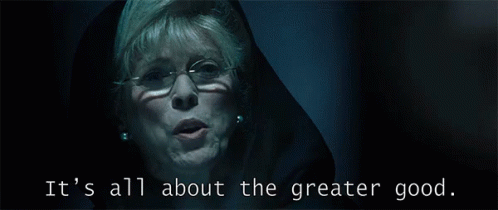
Sisgwald in particular is a great example of what Wilfred could have become if Rozemyne had no stepped in. He very much sees his wives as nothing but ways of attaining more power. He refuses to even think of other people reaching the throne and sees nothing past his own ego.
That’s why he is so taken aback by Rozemyne. Here comes a girl, with so much more experience at negotiating than him, calling him out directly over the many faults that royals are committing. As she points out, they went into a meeting expecting to extort her so completely blind they couldn’t see why Ehrenfest would be unwilling to enter negotiating.
Ferdinand explained in Part 3 how, whoever has more information in a conversation between nobles has the upper hand. This ought to be the way everyone approaches anything, but Royals very much can’t comprehend this in regards to a lesser/middle duchy. To them, all duchies are the same (much like all commoners are the same to nobles) and do not require the information. This is, to put it bluntly, idiotic to the point of impressive.
The best example? The very same meeting they had.
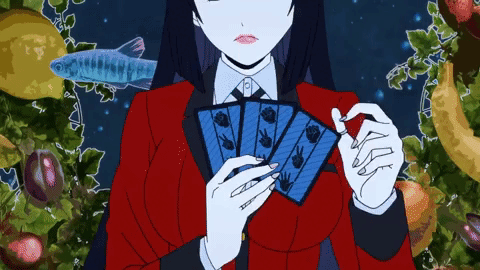
Rozemyne was able to get what she needed. Sure, the Royals also got what they wanted. But that’s it. They were able to obtain the bare minimum. While Ehrenfest was able to walk away with extensive concessions and much more room to make preparations. All while bruising the ego of Royalty.
And because they lack this ability to see nobles as a network, they also have the same problems nobles have. Their petty family drama gets dragged onto the surface for all the country to see. They're giving away information that's critical for negotiations without even noticing.
Hell, they almost exploded a war because Anastasius couldn’t tell Eglantine he liked her. Instead of raising each other up, like Rozemyne does, they drag each other own. Their lack of communication causes Rozemyne to be thrust into the middle of their family feud, trying her damnest to solve their problems, while they worry abt their own selfish desires.
But perhaps the most crucial network that they’ve lost is: Information.
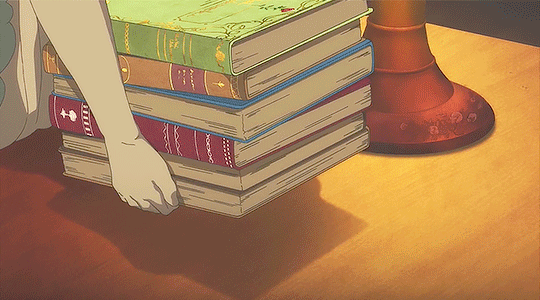
Due to the fact that Ascendance of a Bookworm is a light novel about books - it’s inevitable that we would stumble at some point with the importance of achieving information preservation. Urano herself, as a librarian, is acutely aware of how easily information is lost. Rozemyne on her hand, has had to see the direct impact this has.
The reason why the Grutrissheit is lost, is not just the war. It’s the lack of any real information preservation. And this is artificially created by the Royals themselves.
The Grutrissheit was passed by from heir to heir, but this also meant that very few people were capable of accessing the information. When war struck, those few people were killed, and the texts that remained were written in ancient languages. A language which all but few could read (Let’s put a pin on that*).
And now, we find out that Royals of the past (possibly) implemented a barrier so that no one BUT royalty could access the Grutrissheit. This makes it so that the best Zent candidate they have right now, cannot even touch it.
In an attempt to shield themselves from others, potentially, stealing what they think their “rightful” position is - they’ve blocked access to information. And now that they’re been killed NO ONE HAS ACCESS TO IT.

This is something that Rozemyne, as a librarian at heart, is desperately trying to avoid. Through her transcriptions and the rapid spread of the printing industry, she REFUSES to gatekeep information. She wants it to be accessible to anyone who wants, as long as she can get something of equal value (aka, other stories/books), and that's only to emphasize the VALUE books inherently have.
This is all to say, that the politics of AoB are quite simple if looked through these perspectives, and framing Royalty as the flawed institution it is.
It’s about how hierarchies of power are bad. The few, who have not proven their worth, have the power to deny information to a large population and deny themselves any responsibility for their actions.
Ascedance of a Bookworm initially presents you with the idea of Nobility as something rational, just to later point out all the ways it which it’s failing. The only reason why many things are working or improving in Ehrenfest is because of Sylvester and his ability to properly integrate Rozemyne’s ideas.
Ascedance of a Bookworm also states that this is not a fix that can be solved in a single action, in fact it cannot be fixed in single generation. Something that Rozemyne critiques of Sisgwals is his insistence that all problems ought to be solved quickly so they cannot cause harm in the future (again, amputating an arm to save the head).
But this is proving to be a flawed response. This idea of cutting all crippled arms is what gives way the purges, and the mana crisis they’re having.
Rozemyne, perhaps as a chronically ill child herself, does her best to avoid this. She recognizes that just because someone isn’t “up to standard”, doesn’t mean they cannot be rehabilitated and integrated back into society. She does this believing human life to be valuable regardless of what can it offer - but because of the world they live in she has hidden this behind the “so they can give back to society”.
It’s way more productive to save someone than to kill them. This creates a bunch of problems, yes. But it’s worth it. Being a leader it’s not an easy job.
It’s something even Ferdinand comments on. To be a Zent, you have to give up everything you love for your country. And that means EVERYTHING. Something that, if I’m being 100% honest, I don’t think Sisgwald understands. The mere idea of him waiting to be Zent simply because that’s what he’s been told all his life is tantamount to laughable.
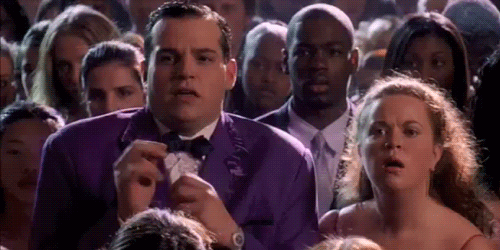
At this point, the best option is undoubtedly Eglantine. If he fails to understand this and clings to a throne he’s no longer the best suited for - it’s nothing but useless pride wrapped in a cocoon of delusion.
There’s so much that needs to be learned and work to be put in. Rozemyne does not accept the role, not because she’s humble, but because she understands this. Leading takes hard work, it takes time, it takes effort. She does not want it, and why should she? She has been offered none of the privileges of royalty, yet she’s expected to perform their labour and duties.
Those who benefit from Royalty are basically dumping all their work on her lap. Well, granted, not all the work. But definitely a good chunk of theirs. For example, transcribing ancient languages to find their stupid bible, instead of asking the temple.
(*PIN: And mind you, people can absolutely still learn ancient languages. But another huge fault of the royalty, as it is right now, is that there’s no one willing to put in the time and effort to preserve or revive their own goddamn culture).
Yeah, sure, maybe Rozemyne has a duty to rule, as she’s the most capable…But. She shouldn’t. Royalty, who’s been trained their whole lives to rule, or support rulers - should be more than well-equipped to solve their own problems. Hell, they have attracted top talen- No. They’ve stolen top talent from other duchies, they have all the resources they could want, and they have the ultimate say on absolutely everything. Tell me why they want to poach another talented person from their duchy?
It’s not Rozemyne’s responsibility to solve the problems of royalty. In other words, it’s not our duty to solve politicians’ problems. It’s not our duty to solve the problem of first-world countries, it’s not our duty to solve other people’s problems.
Ugh, I’m getting heated.
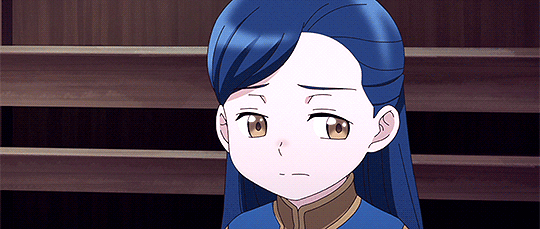
This is all, mind you, after Rozemyne was told in her early years she wouldn’t be able to achieve anything because she’s just a commoner. Which, again, bullshit. She’s the prime example that there’s nothing that prevents a commoner from being on the level of an archduke, or hell, becoming a Zent, other than a social one. Truly, Yurgenschmidt’s nobility as made-up as our own.
The introduction, or rather, the direct criticism of royalty in part 5, is the house of card toppling in all the themes touched barely in previous parts.
The issues with meritocracy, the absurd power inbalances, the outdated view of older generations that refuse to give way to a better future for the youth, as well as a hierarchy based on an entirely made-up concept.
It quickly proved to be absolutely a political story. But I find it so impressive that it’s not something you would notice, or at least be explicitly made aware, until Part 5.
Part 1 - 4 made sure to lay the ground of how this world works, then in Part 5 it decided to break the illusion that it is, in fact, working.
PREV <;< MASTERLIST >> NEXT
#ascendance of a bookworm#honzuki no gekokujou#rozemyne#essay#abolish the monarchy#no like seriously rozemyne is one bad day away from making the monarchy rethink everything
199 notes
·
View notes
Note
In your opinion which of the Endless do you think has the hardest job and why?
short answer? death
slightly less short answer - either death, dream, or none of them, depending on the angle you're looking at it from
long answer... they're all perfectly suited to the task they were made for, so in the sense of physical ability, none of their jobs are difficult. which means difficulty can only be measured by emotional toll. and that's not really based on the job so much as it is on how much they care
the big thesis in sandman is that life = change. that's an equation that cuts both ways, and a theme that runs through almost every character. the endless, as the fundamental aspects of life, all have power over something that can change people, right to their core
and that's a huge responsibility, which they all have their own ways of coping with
we never learn that much about how it affects destiny or despair, but death had a huge character arc to go through (everything she says in the show is originally in a winters tale, as well as the fact that she stopped collecting souls, because it was getting to her too much - until she realised that was doing more damage), so now she copes by finding meaning and purpose in it, by befriending everyone she comes to take, by living in some ways a human life of her own
desire ignores it, and tells themselves that mortals don't matter to them, so why should they care who gets hurt? they turn it all into a big game and they don't let themselves think about it for even a second, because if they did it would destroy them (the narration tells us this at the end of dolls house)
destruction didn't cope with it, he left, and refuses to let there ever be another destruction of the endless
and del... just observes it. she accepts the difficulty and the responsibility, and sees it with a lot clearer eyes than her siblings. and sometimes that means she's the most fit to cope with it. other times it breaks her too, and that's when she gets her bad days
the reason i list dream as a possible option here, is because dream is not coping. he's trying to do everything his siblings do at once and none of it is working for him. he can't be desire, because he cares too much about mortals to ignore and laugh at them. he can't be death because he doesn't see himself as someone with a life, just someone with a job - that has to come before everything else. he can't be destruction because again, he values his purpose more than his happiness, leaving is inconceivable. and he can't be delirium because that would require him to see the world as it really is - and his nature runs fundamentally contrary to that
so that could be why dream. but this could also be why none of them - because that's not really the job that's hard, so much as it's not working for dream specifically. if he was somebody just slightly different, he'd be able to handle it a lot better
(the other reason i might consider dream is the vortexes - we don't see enough of the other endless to know if this is something they have to deal with (or something similar), it might be, so this might not be a dealbreaker? but it's definitely not easy for dream, overture goes into that plenty, he viscerally hates the idea of killing people, it goes against everything he is, and yet he has to, or the entire universe will die. and that's a tough responsibility to have)
so why death? because she's the only one who will never die. she doesn't, herself, change, not even if you force a reincarnation like with dream. her sigil will stay the same forever, the necropolis only holds six funeral cerements - death is unlike the others, its written in the rules. it's not the only way she's an exception either; it's mentioned at one point in brief lives that the endless all feel uncomfortable in each others' realms, they can sense that this place is made of an entirely different energy to the one they're used to. except death, who can traverse all the other realms as easily as her own, because even her siblings have to die eventually
more people under your charge, more people to care about. the more it hurts if you let it. her job covers every being in existence, and for the most part it involves being something they don't want you to be. she has had every negative emotion people are capable of directed at her, in a much more first-hand way than her siblings may get. and you have to be okay with it, you have to
because the only way to be free of it is to be the only person left in all existence
#sandman comic spoilers#ask#dream of the endless#death of the endless#delirium of the endless#desire of the endless#destruction of the endless#mine#meta#the sandman
207 notes
·
View notes
Text
I feel like people forget Time Lords are the same person across every incarnation.
like, ‘14’ even says that it’s not dying. Same memories, same thoughts about people, sometimes expressing something they can’t, not being able to say something they used to.
Think back to you 10 years ago.
You're probably a very different person now compared to then, but you're also not at the same time.
You probably talk differently now, you see the world differently, you might believe different things.
When The Doctor regenerates, that's the level of change that is done but in a few seconds instead of a decade.
Fundamentally you’re still the same person, and you’ve probably retained most of your core beliefs and interests, but you’ve also grown and learnt more about the world; altering many of your less integral values, and even possibly some of you more integral ones.
you could attribute it to a line from one of the novelisations, where the doctor attributes his lack of control over regeneration (and as we can imply, how bad of a post-regen situation he has) is because he didn’t pay enough attention in regeneration lessons.
I think for the Doctor it's like if you woke up and were suddenly 8 again, with all your 8-year-old impulses and personality and likes/dislikes, but your current memories.
The Doctor is always the Doctor. There's no "2nd Doctor" or "10th Doctor" or "14th Doctor." they're all the same person. Just because someone gets clobbered on the head and wakes up from the resulting brain damage knowing fluent German doesn't mean they disappeared and a new person took their place. His brain gets a shake-up, and his appearance changes, but it's still the same person all together.
I think all the media hype about the actors playing the role, and this weird regeneration for the 60th, kind of make it hard to remember that. For the Doctor, it's one continuous line of consciousness. 10 didn't die and wake up again with 13's memories, because there is no 10, there is no 13, there is only The Doctor. We number their faces but they're one person.
And it's confirmed by what he said immediately after the regeneration. He didn't say, "I'm alive!" or "How did I get here?" or something along those lines. He said, "I know these teeth." He realises that he's reverted to an earlier form, but he hasn't forgotten the intervening forms.
It seems to change not just from writer to writer, but Doctor to Doctor. 9 didn't seem to think of his 'death' as the end by any stretch. 10 considered them different people that shared memories, while 11 seemed to see more continuity and connection from incarnation to incarnation. 12 similarly was refusing to regenerate because he wanted to end it, a pointless position unless he saw 'the next Doctor' as still being him. 13 seemed to lean more towards the individual incarnation view, as she felt in necessary to say goodbye to Yaz.
And this is just the Doctor, a single Time Lord. We've seen extremes from literal dissociation from incarnation to incarnation with the One through Union (aka the collective, but that’s due to their condition), to Romana trying on new faces line a human would a new outfit, or how the monk tries to act like their past selves are different people to shift the blame and get away free from the consequences, or how six was post-regen
I just really don't like the idea of them being separate people, which unfortunately does seem to be RTD's interpretation from 10's line of regeneration feeling like dying, and a new man sauntering away. To me that devalues the idea of the Doctor being the same person from 1963 until today. They're the same person, who have been through the events of every single episode, and remember them and all the companions there travelled with.
If they were different people, them meeting former companions just doesn't have the same weight either. 10 for example becomes someone who just knows of Sarah Jane instead of being the same person who travelled with her.
But that doesn't mean it can't still be confusing when an old face returns. It's something that's never happened to the Doctor before, and perhaps it's something that he's never heard of happening to other Timelords either. So when it does happen he's very confused because he immediately knows who this new version of himself is, instead of having to go through the usual self discovery at the start of each incarnation.
I remember from an audio story (I think Sirens of Time), one of the Doctors (i say DOCTORS because time travel) said something along the lines of this: Take every trait of their personality is like a bar graph. Kindness, courage, alienness, anger threshold, etc. each have their own bar on the graph. Each regeneration is essentially the same personality but the bars could be altered with some traits more emphasized in a new face than the previous one.
Some examples of what I mean.
10 and 11 are examples of the alienness trait being skewed in opposite directions, where I feel Smith is more alien-like in his physical behavior than Tennant is. 12 and 13 still have this trait but it’s viewed more subtly through social interactions.
6 and 12 were less on the kindness scale but increased over time. 10, 11, and 13 seemed to have that kindness trait more emphasized.
Anger threshold /emotional control can get thrown multiple ways if a respective Doctor is impulsive and expressive vs bottling it up and letting it simmer. I feel like there are many examples to pull from off this alone.
There could be more obvious ones I’m missing but these spring to mind. I do like this interpretation since it lets you know it’s the same person but just aspects can be more emphasized than others across their different incarnations.
I like to think it’s just the same person at different points in their life - hell, we aren’t the same person at 18 that we are in our 30’s, or even the same person we are in our 40’s that we were at 30.
Life changes you, sometimes you’re goofy, sometimes you’re callow, and sometimes you’re stern. In DW terminology: you’re a quirky thief, then a person who has to kill everything they know, and then you become a person capable of finding some solace in life… then to a whole new person.
From the doctor’s point of view I believe they think they are the same person, they don’t differentiate between selves. Think of 12 near his start when 11 phoned Clara, he says he didn’t need to eavesdrop because it was him talking and that she looks at him but can’t see him.
Now this doesn’t mean the doctor doesn’t remember the traits each regeneration has, and this can manifest in their subconscious as talking to their different regenerations; but that’s no different than you talking to yourself in your head.
like, it’s even implied 14 will eventually become 15
#Doctor who#first doctor#doctor who 60th anniversary#second doctor#third doctor#fourth doctor#fifth doctor#sixth doctor#seventh doctor#eighth doctor#ninth doctor#tenth doctor#eleventh doctor#time lords#Regeneration#thirteenth doctor#twelfth doctor#fourteenth doctor#fifteenth doctor
127 notes
·
View notes
Text
Keeping Them In Character...
It’s so interesting what you wrote about fixing Morpheus in the other post, @rriavian. I didn't want to take that one too off topic, hence I made a new one. I hope this is okay, because I love talking about these things, especially with other writers (everyone who reads this, writer or not, feel free to join in). I think I’ve said this somewhere else before (can’t remember where): If we keep him in character, there is no fixing him anyway.
But fanfic wouldn’t be fanfic without those attempts, and I totally get why. I want a different ending for him, too, alas, not in canon, even if that might sound contradictory. If they touched the ending in the show, I’d honestly be pissed off, but that’s my personal problem, and Neil can do with it whatever he wants—it’s his story. So I guess every fic that sees him alive at the end starts with the premise that we have to bend him into shape ever so slightly to make it possible. To me though, there’s a world of a difference between that and basically turning him into an OC with no resemblance to Morpheus bar name and looks (not saying that isn’t fair, it’s just not for me because if I wanted that, I’d write an OC, because that’s what he would be to me).
Morpheus is not weak. I even get why some people who mainly came to the Sandman via the show might be drawn into that direction initially, because we obviously see him very low at the beginning (I’m hesitant to say “at his lowest”). But after that, he pretty much stands in his power again (with ups and down obvs)—a power that burdens him for a multitude of reasons I don’t want to go into now, otherwise I’ll still sit here tomorrow. Wrote about it a million times though.
I think the fundamental misunderstanding is that anyone can fix him. So whoever we pair up with him can only walk with him, but he’ll need to take the steps himself, and more importantly: He would need a reason to want to do that. And yes, that’s exactly what my OC tells him at some point because she suffers, and she’s done with it despite understanding him on a deep level and accepting who and what he is—I think you're right when you say there’s a tendency in fandom to turn one half of the relationship into some kind of martyr and/or “void filler” to save someone. And the tricky thing about Morpheus is: He actually is looking for something to fill a void (which, to stress that again, doesn't mean he isn't powerful, so it's not to be mistaken for general weakness). And both in The Sandman and in real life, that never leads to anything good, but I can see why it's tempting to fall into that trap because his character lends itself particularly well to that type of trope (and I even play around with that in the first part of my fic, but it was also clear to me that it won't end there).
Now, this obviously isn’t real life, a story doesn’t necessarily have to lead to something good, but the most important question, to me, was always: What would make him take said steps himself, and above all: WANT to take them? Because truly, that’s where it all falls down in canon. And there is enough scope to explore that in quite a few different ways in my view.
For me, it was always clear that it can never be through wanting to change who or what he is on a fundamental level (that’s why I’m not into retired!Dream AUs, because they would fundamentally change who he is. Again, totally fine if people want to explore that, it's just not for me). I honestly believe he would bristle at that and recoil/retreat. Because it would just add to what is at the core of his very dilemma: If you want to change who and what he is, you basically admit you don’t truly understand him (not even those closest to him truly do), and that’s part of what breaks him (I say “part”, because there are more things in the mix than one can shake a stick at). And there is a clear difference between his being capable of change (we all know he is) and wanting to change him. They are not one and the same, but sometimes, fandom treats them as if they were.
Misunderstanding him, misinterpreting him is inherent to his being: He is Dream—forever out of reach, forever nebulous and unreal and weird and prone to be misunderstood/misinterpreted unless you stop trying and just trust the process/intuition--otherwise, it wouldn’t be (a) D/dream. It truly applies to all that he is. And you see what happens when he tries to rationalise things himself: Although he understands the boundaries between dreams and reality and keeps them in place, he is UNreality, and forever will be. And the way that gets ignored in fandom sometimes baffles me. Although it also doesn’t, because of course we’re human, and we want things to be real.
Back to those steps: I personally think he would never take them for himself because he doesn’t believe he has a story, and outright centring himself as the main character who is in charge of his own story is something he will always deny himself. But I think that’s also the way in? Because if he could perceive, at least initially, that he is part of someone else’s story and that they WANT him in that story (all that he is and isn’t, including all that is broken) with full acceptance but without complete self-denial. That they don’t try to change him, because they understand what the unreal is (and that requires a very particular type of person). That he would want to try because the love he has for them weighs heavier than how little he loves himself (was it you, @stellerssong who recently also wrote something along those lines, or am I making that up?). And that by doing that, he gradually learns to see himself through someone else's eyes. And once on that path, he would maybe, just maybe, start to understand that indeed he has a story of his own, and that he might be able if not to entirely rewrite, but at least to keep on writing it from this moment onward. Like everyone who believes (because believing something is possible means trusting in it despite it not being real, and trusting in the process rather than the result. He knows the power this wields over everyone but himself--not because it’s not true for him but because he won’t allow it. But maybe he could get himself to a stage where he allows it). That it's not about fixing anything really, but growing enough around what's broken and always will be, instead of trying to make it smaller or go away.
Yes, I do believe that might be possible, although there's much more to it than I've written here because it's incredibly complex, and it requires a lot of give and take, compromise and yes, pain along the way. And maybe it might not work at all (I never really 100% know where I end up when I write because my characters always, always make those decisions for me, and despite setting out with a plan, I almost never end up where I had initially intended to go. So if you asked me today, I couldn’t promise that I truly know where my current WiP is going and who will be where at its end, and it is very frustrating at times because I’m not always happy with what these guys are doing. At the moment, I'm truly not). But I believe he would at least try if someone who allowed for those dynamics were around. And that’s why I wrote an OC, because while I can see one or two canon characters that get fairly close to what I'd envision (and none of them are one half of the bigger ships), I ultimately couldn’t do it with them because there was something in their established dynamics that threw it off for me. Unless I would have pulled at least one of them (probably both) OOC to a degree that felt too much for me. But I'm always super interested in other people's process and line of thinking.
But yeah, that’s the precarious dance between trying to keep him in character while also working towards a different ending (that's obviously far less of a problem in one-shots). If that will ever work—who knows…
#sandman fanfic#the sandman#sandman#dream of the endless#morpheus#fanfic writing process#also somewhat of a >>>#sandman meta#trying to keep them in character#and it's hard
36 notes
·
View notes
Text
[lost characters as crane wives characters. lets go]
[jack shepherd - know how]

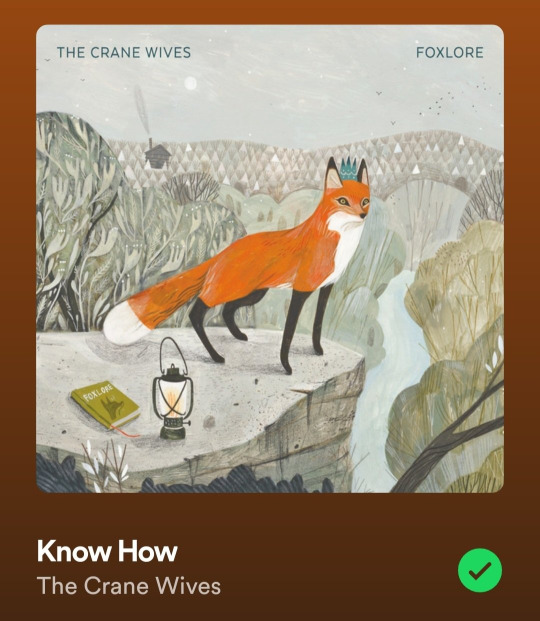
[fundamentally a song about anxiety and not being able to move on, feeling trapped and resistant to let things change even when it should be for the better. jack can't move on, it's a fundamental driver of the story, he always feels like he can't be done with anything.]

[kate austen - easier]

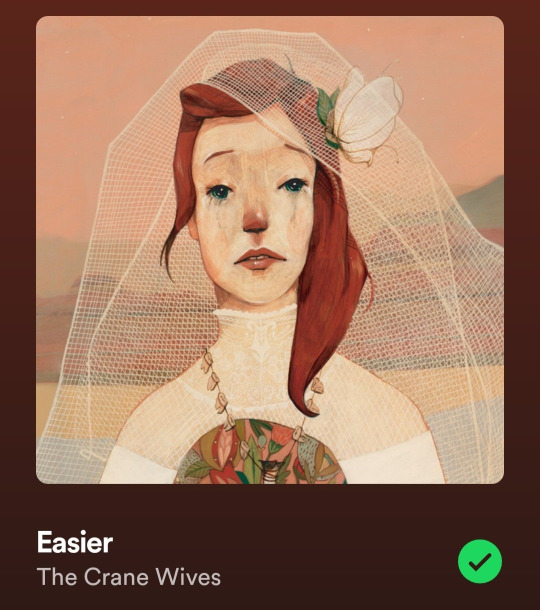
[ive talked about this before but. its literally her. girl who feels like she cant ever find peace staying in one place. girl who just wants to settle down but can never find a way to cure that aching in her chest to move.]
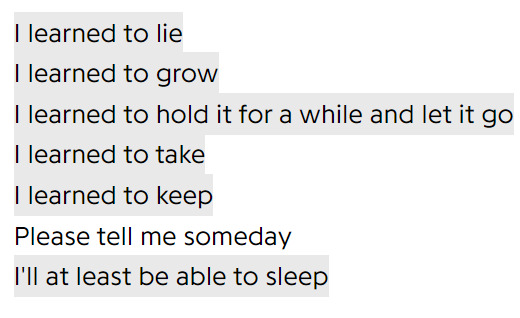
[john locke - new discovery]


[john felt like he was stuck, a sad old man with nothing to live for, just going through the motions without purpose. so, he searches for something to give him meaning, but even when he finds it in the island, he feels like he has to keep pushing and keep forcing on to preserve that sense of purpose, because he has to be moving towards something, or else it was all for nothing.]
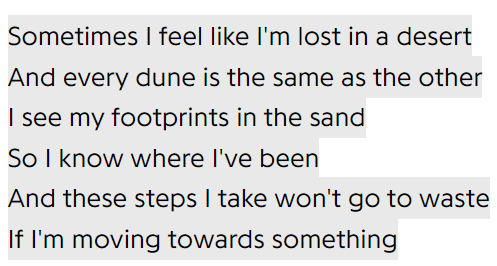
[james "sawyer" ford - ancient history]
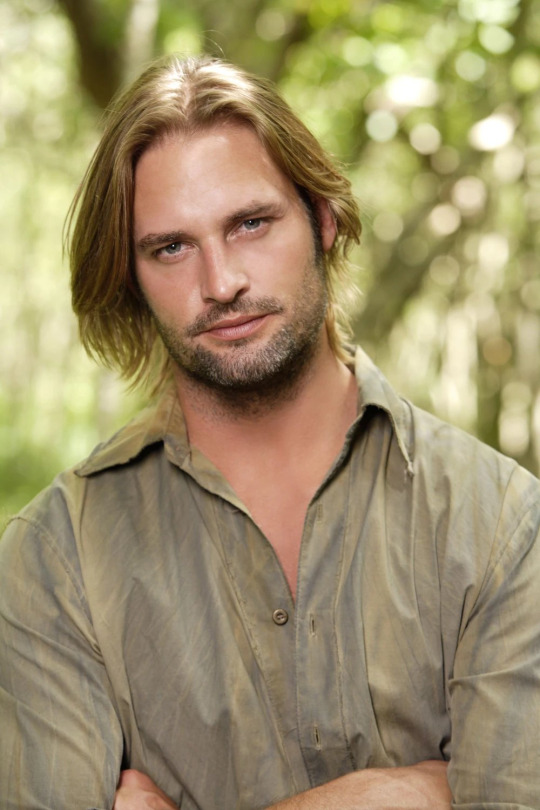
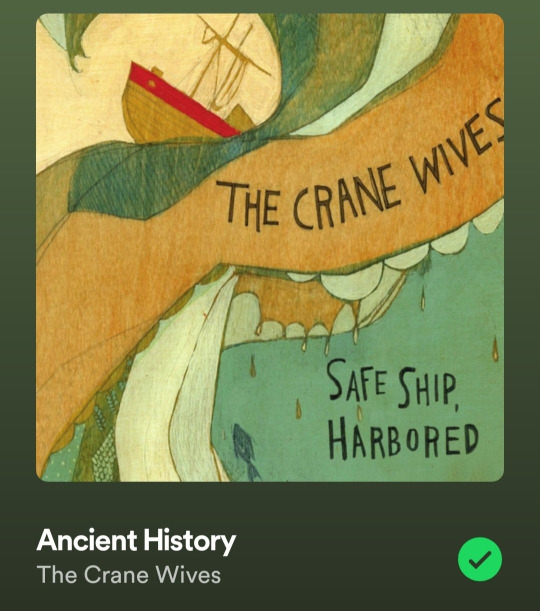
[okay i really love this one. ancient history's so james core its about a traumatic past that you can't help but let color your existence. like james, the singer feels defined by what's happened to them because of how much it still hurts them. he tries to move on, but he's trapped in cycles.]
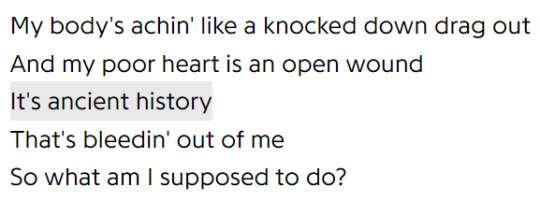
[sayid jarrah - the wolf]


[well someone sure thinks they're a monster. the singer of the wolf sees themself as something dangerous and violent, something that will inevitably hurt the people they care about. both the singer & sayid feel like they're trapped in cycles that just hurt themself and others.]
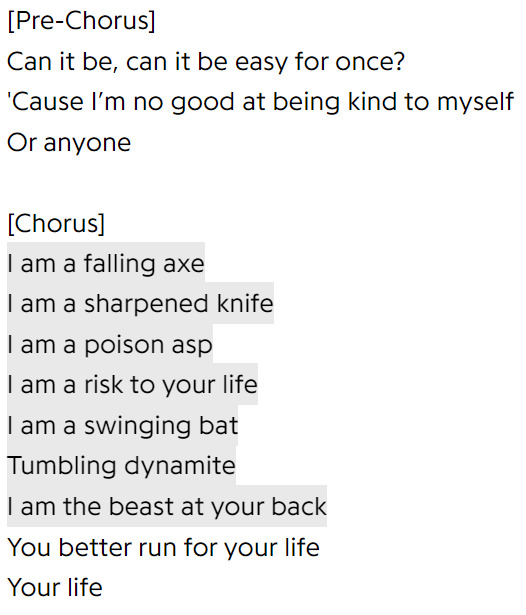
[hugo "hurley" reyes - volta]


[very much a song about mental health. specifically it's about improving, finally deciding to do something about what you've been through. fundamentally volta's a song about hope & making a change for yourself in a way that's super reminiscent of hurley.]

[sun-hwa & jin-soo kwon - curses]

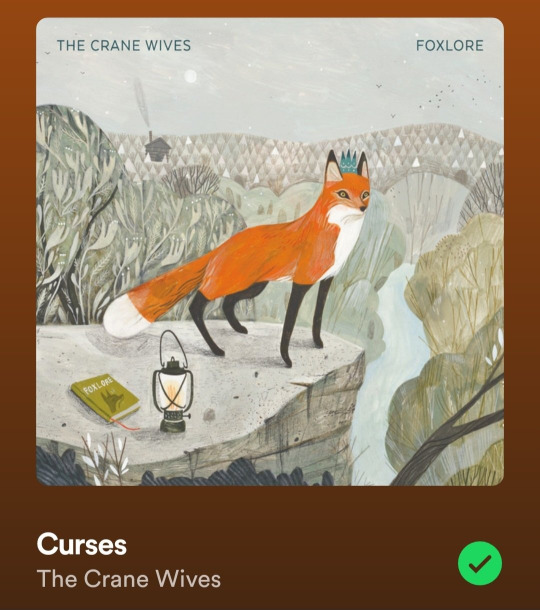
[okay yes i know all the rest of the characters got their own separate songs and all but 1. sun & jin's arcs are so heavily defined by each other in a way unique to them, and 2. curses is so incredibly them i dont want to pass it up. the two struggle to find the words for each other, to be open about what weighs on them and their secrets, to the point it nearly destroys their relationship. but, in the end, the two still stay together, they still try to improve their relationship.]

[charlie pace - the garden]

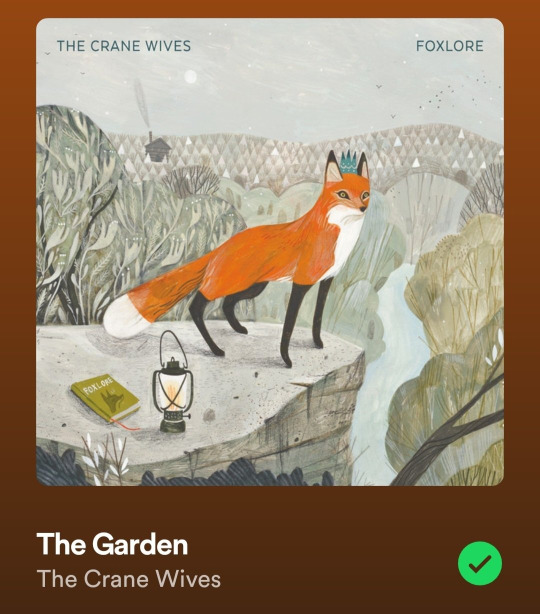
[the garden is in large part a song about catholic guilt. need i say more? it doesn't matter because i will. charlie feels incredibly guilty over his past and his actions, but struggles to respond to that guilt, instead stewing in self-hate and fear.]
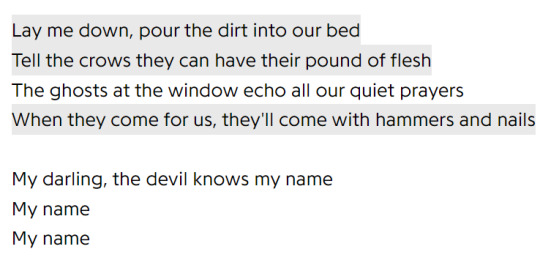
[claire littleton - here i am]

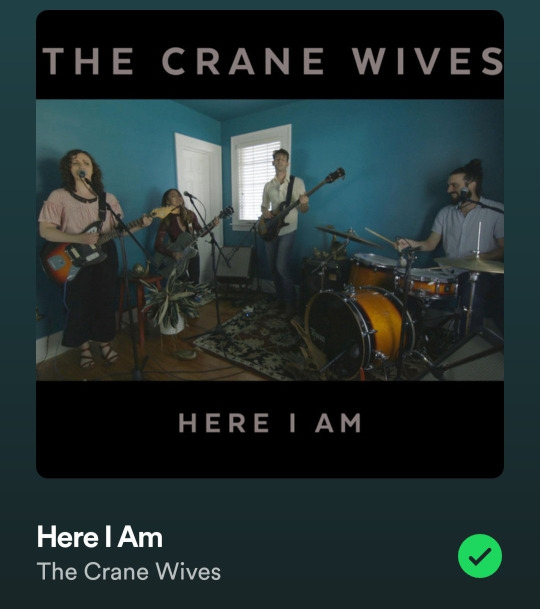
[claire forever feels abandoned. in her flashbacks and by people on the island, she is always left behind by the people she cares about, until she feels like her loneliness is forcd to define her in season 6.]

[desmond hume - little soldiers]
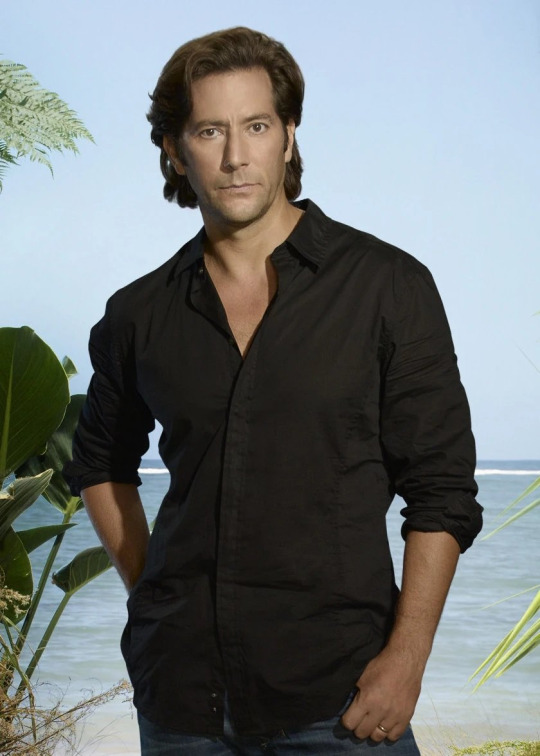

[little soldiers is extremely despen coded. desmond insists that he cares about penny, but fears that after everything, he's hurt her too bad. and yet, him and penny still try, they still put in the work to improve and stay together.]

[aight thats all i can fit for now ill add a part two in a bit]
#lost#lost abc#the crane wives#jack shephard#kate austen#john locke#james sawyer ford#sayid jarrah#hugo reyes#sun-hwa kwon#jin-soo kwon#charlie pace#claire littleton#desmond hume
27 notes
·
View notes
Note
There are a plethora of issues regarding Vivziepop's writing, but the one that really stands out to me is her lack of themes. She has ideas, occasionally she has something to say, but she has no themes.
If you don't mind my ramblings; I have been considering an AU that is effectively divorced from the series, focusing entirely on the characters Blitzo, Barbie, and Fizzarolli. In brainstorming the story, I have been able to streamline the narrative to 3 core themes.
Masculinity, Control/Power, and Belonging.
Everything in the story is connected to one or more of these themes in regards to the characters and their motivations. Even side characters are wholly infused with these three concepts.
In my AU, FizzaRolli is not a performer, but a stray child with a group of other feral children Lord of the Flies. Blitz is the son of a circus owner who craves his father's approval even as he resents him. Barbie is an up and coming starlet brutally managed by her father who effectively curates her sense of identity as she creeps closer to the spotlight.
Much of Blitzo's story focuses on a young man coming into his own in a world that runs on toxic masculinity, balanced out by the guidance and love of his sickly mother whom he cares for. He's a young adult figuring out himself in a world and community who keeps telling him what he should be. Sub Themes of responsibility, respect, strength and the abuse of power are key cornerstones of his story.
Meanwhile FizzaRolli is the foil of Blitz's story. An orphan without parental guidance living out his coming of age in a Teenage Wasteland. Additionally, Fizz is gay, meaning his queerness colors over the themes in a fundamental way. Being in a Teenage Wasteland, Fizz is effectively in the closet because of how queerness can change others perception of him. And weakness often is associated with queerness, which has no place in a micro-society that elevates this toxic, Fight Club-esque concept of masculinity and belonging. Fizz seems to belong, carve out a space for himself in his community, but struggles come into himself. Especially because underneath it all is a severely traumatized child who never got to be a kid long enough to learn how to be a man.
And from the far other side, Barbie's relationship to these themes comes from the viewpoint of living under the patriarchy as a young woman. How girls are raised to cater to the needs of men, treated as glorified children unless they "prove" themselves over things that many men are merely handed. Her father prioritized her career above and beyond her as a person. While that isn't a trait inherently based in sexism, how he curates her life and downplays her desires and intelligence is rooted mainly in her being his daughter and thus not expected to "step out" into her own like her twin. Leaving her feeling impotent, infantalized and resentful even as she is held on a pedestal.
Control over one's self, perception, and direction.
How masculinity fosters respect and responsibility for young boys while simultaneously threatening punishment for not meeting or stepping outside of certain expectations. Especially the competitive aggression and emotional warfare in toxic masculinity
And a sense of belonging, be it in a community or an identity.
Themes help maintain a cohesion to a story, helps the characters feel interconnected and the world lived in regardless of how much emphasis is placed outside the main cast. It also helps ground the ideas of characters in an abstract way that doesn't place pressure to "prove" to the audience a character does fit the traits you as an author see in them. Most of all, it better enabled the author to pivot viewpoints and easily switch between characters so that they feel individual and not that there is a singular "voice" speaking behind them. It creates a unique soul rather than an empty skin suit for the author to don.
Sorry for the long rant.
No worries, Anon. Thanks for the ramble, it was an interesting read!
21 notes
·
View notes
Text
The Dabi Benchmark of Insanity: A Helpful Guide
What is it? Why won't I shut up about it whenever I talk about villains?
Yeah; this is largely a reference post, for the people who haven't seen this term before... which makes sense, since I made it the fuck up awhile ago and then never really clarified it again, even though I kept using it. I do that a lot whenever I feel the need, but I think this is the only term I've kept using consistently, and I usually explain what I mean in those posts when I make something up, so the DBI is a bit of an anomaly in that sense. I like to think it's self explanatory, really, so it probably doesn't need explanation, but... eh. I talk a lot. One more post won't hurt.
Fundamentally, the DBI is the idea that there's a... limit to how crazy a character can be and still be sympathetic; after a certain point, it doesn't matter how bad their backstory was, no one is going to like the guy eating babies. Authors can (and often do) try to make a truly fucked up character sympathetic anyways, but once they pass that point the response generally isn't sympathy but, 'JFC, can this guy shut up about how we should all like The Masked Baby-Eater already? That guy's an asshole'.
I say 'crazy' for a reason, BTW. The sheer factual amount of evil deeds a character does only has a limited effect on how readers will consider them; how the character is presented, and how they act as they do these deeds effect that reception as well. An easy example is how in something like Gundam, a character who does something objectively horrible (kill someone, start a war, etc etc), but because of how they're developed, and way they act as they do it, we will still sympathize with them. Meanwhile, if there's a school story, a character who is just rude and cruel can be absolutely loathed, by everyone, even if what they did can't possibly be compared to the Gundam character.
It's not that you can't make a good character if you go beyond this point, it's the opposite really: there's plenty of good, memorable characters who are festering shitholes devoid of positive character traits, but we're not expected to find them sympathetic, just really cool or iconic in some way. Making them sympathetic imposes limits on how out there that character can be.
I call it the 'Dabi' benchmark because I feel like Dabi is the perfect example of an edge case, a person who is horrific and broken, but you can still just feel for him why he's like this. It's core to his fundamental design as a character, from his traumatic backstory, to how he's broken and scarred and barely held together by his sheer will, so that while he's an objectively terrible person, cruel, sadistic, who kills easily and wants only to destroy, the reason he's like that is something intrinsically understandable and thus easy to sympathize with.
(Of course, the problem with Dabi is that, as MHA went on, Hori kept changing Endeavour to try and make him sympathetic, while at times intentionally making Dabi seem more at fault for his situation to mitigate Endeavour's blame, which damaged Dabi's characterization on a fundamental level and makes him less sympathetic... but that's not Dabi's fault, that's inconsistent writing)
At the same time, though, I must repeat that he is a terrible human being who does horrible things, and which puts him at that very edge of sympathy, only being accepted by people by how good his backstory is, how fucked up yet human is motivations ultimately are. If his actions had pushed beyond that point, if, for example, instead of just killing people he cold bloodedly tortured them for no real reason, his reception would have been less positive than it was.
In short? The farther a character goes past the Dabi Benchmark of Insanity, that is to say, the more a character is crazier than Dabi, the more people are going to look at you like you're crazy when you try to make them seem sympathetic to the audience.
#the dabi benchmark of insanity#that feeling when you have to explain your alien homebrew logic to normal people#reference post
35 notes
·
View notes
Text
it's frustrating because aglaya is already villainized by nearly all the characters in patho2 (yulia as the slight exception), and the point of this is that you, the player character, are asked to approach this fellow person trapped in an impossible situation with grace instead. the Haruspex, a character who is fundamentally about extending his love to everyone in the game (as described by the devs!) has the ability to extend love, platonic or not, to her! logical! so seeing people talk about how much they hate her IN PATHO2 is like extremely jarring.
aglaya never does anything to harm the player in p2 (boring choice, but that's not my point); the closest thing would be that she causes fan favorite badgrief to have a lasting personal crisis. but a lot of the violent hatred towards her instead seems to stem from her flirting with you...? and it's always visceral want to see her dead kind of hatred. sorry people can't handle a woman in a position of authority speaking somewhat impolitely to them but the "flirting" part does really bug me so I'll get into that
the single major change p2 implemented to aglaya's story was that the Haruspex can meaningfully be on her side by agreeing to her request to leave the town together. it's weird to see that disparaged by fans for her using the imagery of romantic attachment, while the player's never forced to use the same imagery in return. the escape's not "you instantly fall in love with each other and run away" it's about a way of reacting to the fate imposed on both of you by the narrative: pathologic 2 simply describes fate through the lens of romance, re: nara and the brides, re: "a fate like a good wife, emshen... your wife" (re: the option to call aglaya your wife on the train).
& there's a fascinating meta aspect to the fact she can tell the haruspex as the player has the ability to make this choice, to be the only person in the world who Could not villainize her, and maybe even help her under an extremely short time limit. her expressing attraction to the haruspex (through a reflection, even) is for once not a weird misogyny thing but a reasonable way of parsing her feelings and needs into something that you might listen to! it fits within the societal framework expected in the game, and adds a discussion of romantic love to p2's dissection of the ideal of love in general; "discussion" meaning it is given to the player to see how you feel about it, and remains open-ended.
then she doesn't even make it and replaying you Know she'll never even make it which lends all the more meaning to choosing to flee with her. since patho2 is a game at its core about symbolic choices representing love + what it means to the player to choose to undergo challenges for no extrinsic rewards! her whole quest is a microcosm of key themes of patho2 (aka: "udurgh"), and potentially, a moment of respite and genuine friendship during one of its most stressful phases. if someone felt strung along by it I have great news for them about the final impact of every other quest in the game
and furthermore the connections she sees between herself and the haruspex are genuinely there. they're both trapped in the game they both will cease to exist after it and meaning is derived, both for the player and for her ("touch me with your words"), from choosing to fight the inevitable however briefly instead of just submitting to death - and love being the only driving force that can motivate that choice. how did you miss the point about love when it's the only point the game ever makes.
#p2 spoilers#aglaya lilich#pathologic#you see the antidote to mean and pointless complaint posting is... detailed and meaningful complaint posting instead. well enjoy#pathologic 2#only sort of due to my point being you're not forced into it! but it may as well go in my tag ->#aglayartemy
191 notes
·
View notes
Note
i mean this in the most politely curious way, what do you mean by Geoff Johns like? i’m newer to comics, so i really don’t know a whole lot about the writers. i see his name tossed around a bit and i can’t quite parce out what about his writing bothers the people who dislike him, and i’m so curious.
i haven’t really read anything of his yet, i don’t think, but i do know some of his stuff is on my want to read list, so i’m wondering if like…is his writing just awful?
Okay. In my own particular parlance: "Geoff Johns-like" means "banging on about Johns' favourite characters, noticeable bronze age groupy preferences, will not be shocked if it contains retcons changing things Johns doesn't like".
I am not saying that something is bad because it's written by Geoff Johns (in fact there are multiple storylines he's written I quite enjoy - go read Kon's Adventure Comics run, which contains some of my favourite Kon characterisation ever). It's meant more in terms of the fact that a lot of comics writers are quite distinct in their writing style, and you get to know their habits the more you read them. Alan Grant is going to try and sell you on the politics of anarchism. Greg Rucka really really really loves hyper-competent 30ish women with an edge, a grudge and a willingness to be seen as morally grey to achieve their aims. Scott Snyder really likes sweeping stories that have characters questioning their moral cores. Chuck Dixon is going to write everyone from a conservative viewpoint and specialises in character interaction. Grant Morrison loves pulling in pre-Crisis continuity points, whether or not they make sense. Paul Dini is Harley Quinn's biggest supporter and tends to write slice-of-life storylines in the same mode as he wrote BTAS. And so on.
The hallmarks of a Geoff Johns story are fundamentally the following: a massive hard on for the Green Lanterns Corps and Hal Jordan as the best Green Lantern in existence; he thinks Barry Allen is an interesting character; strong dislike of a lot of 90s storyline decisions, particularly the post-Crisis 'Last Son of Krypton' policy (aka 'Clark can be the only Kryptonian') and Hal as Parallax; inability to turn a script in on time; and he's one of the main writers interested in JSA stuff due to the historical quirk that his entry into DC comics came via JSA-related characters and writing. The man is not afraid of a big retcon to fix a situation he doesn't like.
I wouldn't say Johns' writing is awful. I would say he writes stories that you can pick out as specifically written by him as he has a distinct voice, and you'll have a better time with his writing if it's about a character he loves to pieces, if you also like that character.
Most of what people strongly dislike about his writing falls into his willingness to retcon situations and push particularly Hal and Barry as main characters (and people who don't like the Kon's parentage retcon).
I wouldn't actively avoid him, but I would say if you read some of his stories and decide you don't want to read more, you're not the only one.
#there's also a whole thing around Courtney Whitmore which makes sense in context#but is beyond the scope of your ask#Courtney doing Courtney-things is also very Geoff Johnslike#(short version Courtney is based on his dead little sister and Johns is VERY protective of her)
16 notes
·
View notes